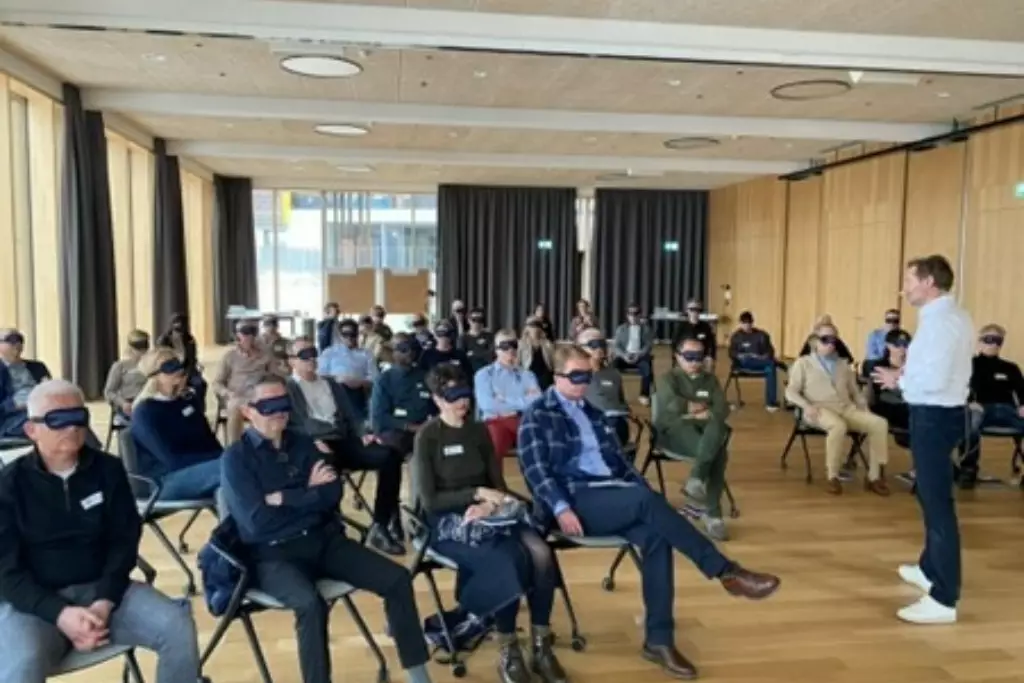Get in touch
What can we learn from Sufism?

- Duration
- 10 min read
- Author
- By Alper Tengüz
Last year, Ekki sent out a solemn invitation:
Who would be interested in a Mountain Wisdom retreat in Istanbul to explore the teachings and relevance of Sufism?
The response was overwhelming. So much so that we ended up hosting not one, but two groups.
As a SUM partner based in Istanbul, I supported our Sufi guide Süleyman in shaping the retreat and grounding it in the lived tradition of Sufism, Islam, and Turkey. Born to Turkish parents and raised in Germany, I’ve always moved between cultures—and here, I simply helped translate between inner practice and professional life, between East and West.
For many in our community, Elif Shafak’s The Forty Rules of Love has long been a Mountain Wisdom classic—a poetic doorway into Rumi’s life and Sufi thought. With this retreat, we finally stepped through that door. Here are three enduring insights that emerged during our time together.

1. Sufism Teaches Us to Ask: Whose Game Am I Really Playing?
“I have lived on the lip of insanity, wanting to know reasons, knocking on a door.
It opens. I’ve been knocking from the inside.” — Rumi
We began the retreat with a deceptively simple practice Süleyman called the X-Ray of the Ego. I invite you to try it:
Take three sheets of paper. For each one, write continuously for 5 minutes.
No editing. No self-censoring.
(1) Write down everything you own, item by item, with superb detail.
(2) Write down all your plans and projects for the future, and all the activies you are currently undertaking.
(3) Write down all your likes and dislikes.
Then ask yourself:
- Do I own these things—or do they own me?
- What are these things saying about the game I am actually playing in life?
- And is it the game I want to be playing?
Am I playing a game of “own more”, “be right”, “be admired”, or “prove my worth through achievement”?
And if I am not the things I own, not the ideas and projects and activities, or more than my likes and dislikes—who am I then.
Many of us realized how subtly our ego (or as the Sufis say, our Nafs) wraps around our possessions, plans, opinions, and image. We chase excellence, but often without asking: excellence in service of what?
As Süleyman reminded us, the ego is masterful at keeping us busy—distracted by status, productivity, self-image, and even seemingly noble pursuits.
“It’s like getting stuck in the duty free,” he said, “surrounded by attractive offerings, but forgetting where you were heading, that you had a flight to catch.”
We often confuse the ego’s game for a higher one. Sufism invites us to pause, reorient, and ask:
Am I still walking toward what truly matters?
2. Sufism Teaches Us to Grow by Letting Go
“The path to the truth is a labor of the heart, not of the head. Make your heart your primary guide. Not your mind.” — Elif Shafak, The Forty Rules of Love
Sufism doesn’t aim at growth the way we usually define it. There’s no ladder to climb, no persona to polish. Instead, it invites us to return. To peel back the layers. To shed what no longer serves.
That is Sufism’s version of leadership development:
- Not technique. But friction.
- Not speed. But subtlety.
- Not more accumulation. But deep refinement.
Süleyman reminded us: real growth happens through friction.
And friction, in the Sufi path, comes not from striving harder—but from resisting what your ego wants in that moment.
The ego prefers comfort, certainty, and control. It seeks praise, power, validation, and escape. But when we give it what it wants, we strengthen its grip. When we resist—even gently—we begin to weaken its hold.
He offered a metaphor: the heart is like a mirror. But in older times, mirrors were made of metal. To reflect clearly, they had to be polished with brimstone—rough, gritty, persistent work.
“That’s why Sufism is not science fiction,” Süleyman said. “It’s science friction.”
So how do we practice that friction?
Try this simple starting point: notice when your ego wants to complain. When your inner voice starts blaming, comparing, or criticizing—pause. Don’t feed the pattern. Just witness it. This is how the inner observer begins to grow.
You can also observe other common ego reflexes:
- The need to be right → What happens if I soften my stance?
- The need to control → Can I let someone else take the lead?
- The need to impress → Can I stay silent and listen instead?
Süleyman offered one rule of thumb:
“If you’re unsure what to do, ask your ego what it wants. Then do the opposite.”
These are not grand gestures.
They’re small, precise acts of friction—deliberate moments of reorientation.
Each one weakens the ego’s story and strengthens your center.
Small, daily acts of friction—done consciously—become the fire in which ego softens.
3. Sufism Teaches Us to Lead from Center—Even in Chaos
“The quieter you become, the more you are able to hear.” — Rumi
Modern life is noisy. Leadership, even more so. One of the most powerful lessons from our time in Istanbul was this: presence isn’t something you find by escaping chaos—it’s something you practice in the middle of it.
We trained that presence in three ways:
- First, by walking through the chaos of the bazaar.
Partnered up, we moved through the swirl of voices, movement, and color—listening to one another as if nothing else existed. The prompt was simple: “What choices are you making in life—and where are they taking you?”. Our task was to hold attention—no reacting, fixing, or nodding. Just presence. In motion. - Second, by whirling like the dervishes.
We weren’t performing. We were practicing. Turning from our center. Losing balance, regaining it. As Süleyman said: “The ego wants to grasp and hold. The heart knows how to turn.”. In leadership, the world will swirl. But can we stay rooted while everything around us moves? - And third, through the daily rhythm of prayer.
We visited mosques five times a day—not out of obligation, but to remember.
Why are we traveling in life in the first place?
What is the point of all this activity?
Each pause became a subtle reset. A moment to center. A moment to return.
These three moments—walking, whirling, praying—were not abstract ideas. They were practices. Rituals, in fact, to pause, reset, and remember the real game we are playing.
Even if you don’t follow Sufism—or any formal tradition—what became clear to all of us was this: In our busy, reactive world, we need some kind of algorithm to return to center.
So the question is not whether you pray or whirl. The questions are:
- What is your center?
- How well do you notice when you’re away from it?
- And: What rituals help you return?

Walking the Road Ahead
Hosting this retreat in Istanbul—amid a time of deep challenge for Turkey—was a reminder that even in uncertainty, ancient wisdom remains steady.
The rhythm of prayer, the honesty of conversation, the discipline of practice—these became anchors.
In a world often driven by urgency and ego, Sufism offered a different orientation: one rooted in patience, presence, and inner clarity.
First, we saw the ego’s game.
Then, we explored how to weaken it—through friction, not performance.
Finally, we practiced returning to our center—again and again—in the swirl of daily life.
If these questions and practices speak to something in you, I invite you to keep walking.
Over the coming weeks, I’ll be guiding a 7-week online journey called:
👉 From Ego to Essence – A 7-Week Sufi Journey for the Modern Leader
Each week explores one dimension of the inner journey.
Short texts. Simple practices. A space to remember who leads inside you.
Let’s keep walking, or as some Sufi’s say: Ashk olun (Be Love)
— Alper

Latest Field Notes
More field notes that may interest you.

Go home - going home

Your Leadership Space – Obstacle or Enabler?
